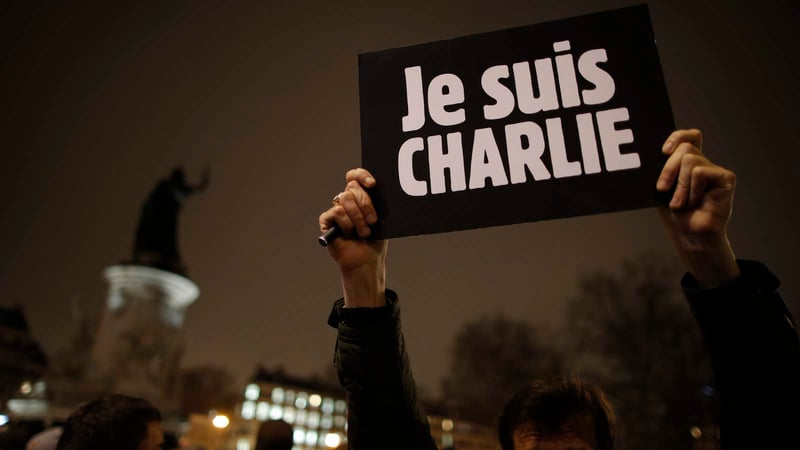Je ne suis pas Charlie
“Je suis Charlie” has become a rallying cry for free speech. But is unbridled freedom of speech really the greatest lesson to learn from the tragedy in Paris?
A man holds a sign that means “I am Charlie” during a gathering at the Place de la Republique in Paris Jan. 7, 2015.
This publication had already been the target of violence in the past because of its irreverent lampooning of Islam and Muhammad. Of course, it also regularly mocked Christianity (including the person of Jesus), Judaism and Moses, as well as politicians of most stripes.
On Jan. 11, over 2 million people, including numerous world leaders, marched down the streets of Paris in a statement of unity and defiance against terror and extremism. Many of them carried signs stating, “Je suis Charlie” (French for “I am Charlie”), as an assertion of freedom of speech and of the press.
The desire to reaffirm these freedoms is understandable—these are bedrock values of democratic societies—yet these events merit deep reflection, not shallow, knee-jerk reactions. Allow me to share some thoughts from a different perspective.
It’s important for Christians not to be carried away by the immoral currents sweeping the Western world under the guise of our freedoms and our rights.
A different perspective
First of all, murder violates the law of God. No matter how insulting, demeaning or cruel one is (and Charlie Hebdo was all these things), murder is never an option. Christians are to take their requests and complaints to God, who judges justly. He says vengeance is His, and He will repay the offender in good time (Romans 12:19). The God of the Bible doesn’t need human help to set things right.
Secondly, freedom of speech has been abused by many people; and most citizens today accept this abuse without a second thought. Freedom of speech originally meant freedom of political speech—that citizens could disagree with national leaders or parties without risking arrest. Those who enshrined such freedoms in our Western constitutions would be horrified to see this freedom used to excuse such shameful things as pornography.
A Christian should not use freedom of speech as an excuse to break the laws of God. Charlie Hebdo openly encourages many acts that the Bible names sin and humiliates those who attempt to maintain biblical and moral standards.
Christians are expected to show respect to all legitimate authority, whether the person actually merits it or not (2 Peter 2:10; Romans 13:7). That includes even politicians! And the Bible tells us to love our neighbors as ourselves (Romans 13:8), even those with whom we disagree, which means showing love and respect to everyone—not mockery, insults and denigration. Applying those passages universally would put Charlie Hebdo and its ilk out of business.
Don’t take freedom too far
We should be thankful to live in relatively free societies that allow us freedom of conscience, of speech and of the press. But it’s important for Christians not to be carried away by the immoral currents sweeping the Western world under the guise of our freedoms and our rights. We must strive to make the Bible our moral guide.
The Bible gives us an important principle in 1 Peter 2:16-17: “As free, yet not using liberty as a cloak for vice. … Honor all people. Love the brotherhood. Fear God. Honor the king.” Constitutional freedoms should never be used as an excuse to break spiritual principles.
So my sincere condolences to the bereaved in France, but no …
“Je ne suis pas Charlie.”
For further insight into the freedom of speech and true Christianity, read “Does God Grant Freedom of Speech?”
Photo by Keno Photography/CC BY-NC-ND 2.0
Date Posted: January 16, 2015

 by Joel Meeker
by Joel Meeker

